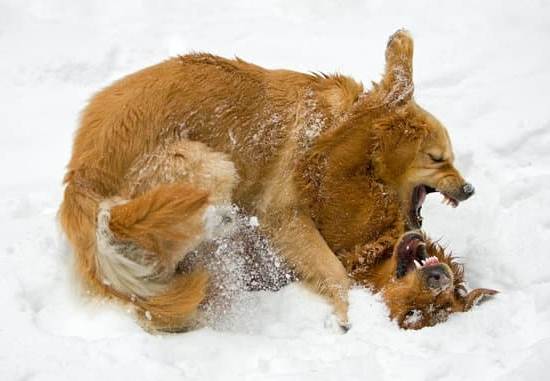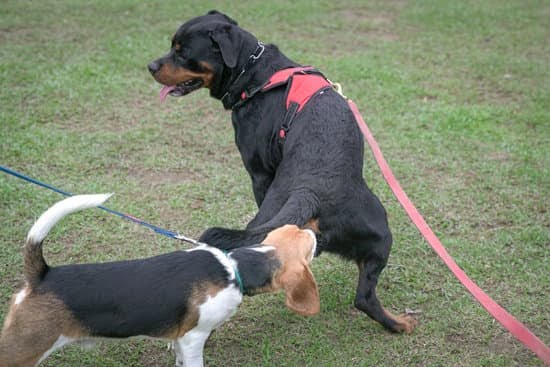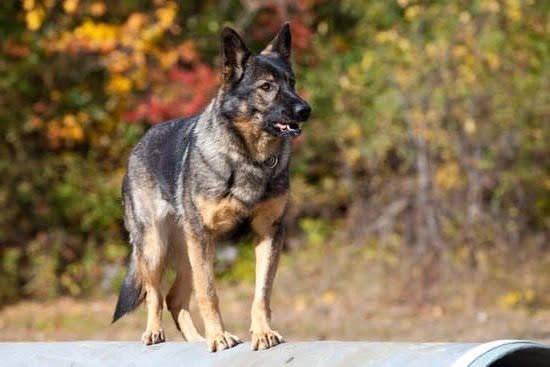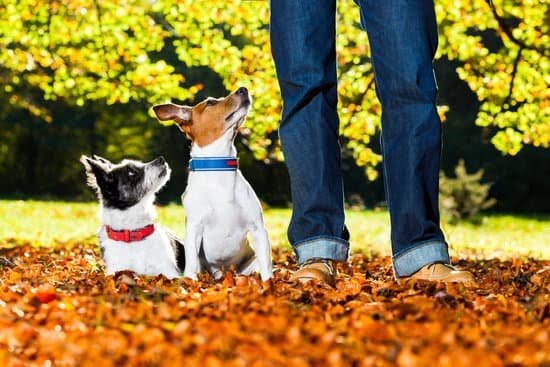Duck hunting can be an exhilarating experience for outdoor enthusiasts, and having a well-trained duck dog by your side can make all the difference in a successful hunt. In this article, we will delve into the comprehensive guide on how to train a duck dog yourself. From understanding the crucial role of a duck dog to troubleshooting common training challenges, we will cover everything you need to know to turn your four-legged companion into a reliable hunting partner.
Before diving into the training process, it is essential to comprehend the responsibilities and duties of a duck dog. These specialized canines are trained to assist hunters in retrieving waterfowl, working alongside their owners to ensure a successful hunt. Their abilities go beyond fetching ducks from water; they are also adept at locating and flushing out birds, making them indispensable assets in any duck hunting expedition.
When it comes to training your own duck dog, selecting the right breed is paramount. Different breeds have varying strengths and capabilities, so choosing one that aligns with your needs and preferences is crucial for success. With the foundation of understanding the role of a duck dog now set, it’s time to move on to building a strong foundation with basic obedience training – the first step towards transforming your furry friend into a skilled hunting companion.
Choosing the Right Breed for Duck Hunting
Duck hunting requires a specific set of skills and characteristics in a dog to ensure success in the field. When choosing the right breed for duck hunting, it is essential to consider several factors.
One of the most important considerations is the breed’s natural instincts and abilities, as some breeds are more inclined towards water retrieval and hunting than others. Breeds like Labrador Retrievers, Chesapeake Bay Retrievers, and Golden Retrievers are popular choices for duck dogs due to their strong swimming abilities and excellent nose work.
Additionally, it is crucial to assess the size, energy level, and temperament of the breed before selecting a duck dog. Larger breeds with high energy levels are typically better suited for long hours of hunting in challenging conditions. Temperament is also crucial, as duck dogs need to be obedient, focused, and trainable. Choosing a breed with a cooperative nature will make the training process smoother and more successful.
Once you have selected the right breed for your duck hunting needs, it is important to start early with basic obedience training to build a strong foundation for your future duck dog. By establishing good manners and obedience from a young age, you can create a cooperative partnership with your dog that will serve as the basis for more advanced training in water retrieval skills and duck searching instincts down the line.
| Key Considerations When Choosing a Duck Dog Breed | Relevant Information |
|---|---|
| Natural Instincts | Consider breeds inclined towards water retrieval and hunting. |
| Size & Energy Level | Choose a larger breed with high energy for long hunting hours. |
| Temperament | Select breeds with cooperative natures for easier training. |
Building a Strong Foundation With Basic Obedience Training
Training a duck dog yourself can be a rewarding yet challenging experience. One of the crucial steps in this process is building a strong foundation with basic obedience training. Basic obedience training lays the groundwork for all other aspects of your duck dog’s training, ensuring they understand and respond to your commands effectively.
To start with basic obedience training, it is essential to establish yourself as the pack leader. This means setting boundaries and rules for your duck dog to follow consistently. Use positive reinforcement techniques such as treats, praise, and playtime to reward good behavior and encourage learning. Consistency is key in this stage of training to ensure your duck dog understands what is expected of them.
During basic obedience training, focus on teaching fundamental commands such as sit, stay, come, heel, and down. These commands will form the basis for more advanced skills needed for duck hunting activities. Practice these commands regularly in different environments to help your duck dog generalize their obedience skills. Remember that patience and persistence are vital when training a duck dog yourself, as each dog learns at their own pace.
Introducing Water Retrieval Skills
Training your duck dog to retrieve waterfowl is a crucial skill that requires patience and consistency. To start introducing water retrieval skills to your dog, it’s important to first ensure that they have a strong foundation in basic obedience training on land. This will help them understand commands and build their confidence before transitioning to retrieving in the water.
One effective way to introduce water retrieval skills is by gradually acclimating your dog to the water. Start by taking them to shallow bodies of water such as ponds or lakes where they can wade in comfortably. Begin with simple retrieves on land near the water’s edge, slowly working your way towards actual water retrieves. Use positive reinforcement techniques such as treats or praise to motivate and reward your dog for their efforts.
As you progress with water retrieval training, remember to keep sessions short and enjoyable for your dog. Gradually increase the distance of retrieves in the water as their confidence grows. It’s important to maintain a balance between challenging your duck dog and setting them up for success. With consistent practice and positive reinforcement, you can successfully train your duck dog to become a skilled retriever in the water.
| Aspect | Tips |
|---|---|
| Acclimating to Water | Start with shallow bodies of water |
| Positive Reinforcement | Use treats or praise for motivation |
| Maintaining Balance | Challenge while ensuring success |
Developing the Duck Searching Instinct
When it comes to training a duck dog yourself, one important aspect to focus on is developing their innate instinct for searching and retrieving ducks. This particular skill set is crucial for a successful duck hunting partnership between you and your canine companion. Here are some tips and tricks to help you effectively develop your duck dog’s searching instinct:
- Use scent training: Introduce your dog to the scent of ducks early on in their training. You can use duck feathers or wings to familiarize them with the smell of game. This will help your dog associate the scent with the task of retrieving ducks.
- Encourage natural behaviors: Allow your dog to explore their natural instincts when it comes to searching for ducks. Provide opportunities for them to track scents, search for hidden objects, and practice retrieving in a variety of environments.
- Implement structured exercises: Incorporate structured exercises into your training regimen that focus on honing your dog’s searching skills. Set up mock hunting scenarios where your dog must locate and retrieve dummy ducks, gradually increasing the difficulty level as they progress.
Training a duck dog yourself requires patience, consistency, and a deep understanding of how to nurture and enhance their inherent abilities. By focusing on developing your dog’s searching instinct through scent training, encouraging natural behaviors, and providing structured exercises, you can effectively prepare them for successful duck hunting expeditions.
Remember to celebrate small victories along the way and adjust your training approach as needed to cater to your individual dog’s strengths and weaknesses. With dedication and hard work, you can cultivate a reliable and proficient duck dog that will elevate your hunting experiences.
Fine-Tuning Duck Dog Training Techniques
Once your duck dog has mastered basic obedience and retrieval skills, it is time to take their training to the next level. Fine-tuning their training techniques will help ensure that your furry companion is fully equipped for successful duck hunting expeditions. One important aspect of this stage is teaching your dog to work effectively in various hunting scenarios, including different terrain and weather conditions.
To fine-tune your duck dog’s training techniques, it is essential to focus on developing their hunting instincts further. This involves teaching them advanced commands such as directional cues, whistle commands, and hand signals. These skills will not only enhance their performance in the field but also strengthen the bond between you and your four-legged hunting partner.
Another crucial aspect of fine-tuning duck dog training techniques is practicing realistic hunting simulations. Set up scenarios that mimic actual hunting situations, including decoys, water blinds, and different types of cover. This hands-on approach will help your dog become familiar with the sights and sounds of a hunting environment, ultimately improving their overall performance during duck hunting expeditions.
As you continue to refine your duck dog’s training techniques, remember to be patient and consistent in your approach. Celebrate small victories along the way and provide positive reinforcement for good behavior. Utilize rewards such as treats or praise to motivate your dog during training sessions. With dedication and perseverance, you can successfully fine-tune your duck dog’s training techniques and create a reliable hunting partner for years to come.
Transitioning From Training to Hunting
Field Practice
Once your duck dog has mastered the basics of obedience training, water retrieval skills, and developing the duck searching instinct, it is time to start transitioning from training to actual hunting scenarios. Field practice is essential to simulate hunting conditions and prepare your dog for the real deal.
Set up decoys in a field or near a lake to mimic a hunting environment. Practice sending your dog on retrieves, working on blind retrieves, and navigating obstacles like tall grass and brush.
Introduction to Gunfire
One important aspect of transitioning from training to hunting is introducing your duck dog to gunfire. Most hunting situations involve loud noises from guns, so it is crucial that your dog be comfortable with gunfire. Start by desensitizing your dog to loud sounds by gradually exposing them to gunshots at a distance.
Use positive reinforcement techniques like treats and praise to create positive associations with gunfire. Slowly work up to shooting while your dog is retrieving or when birds are flying overhead.
Working With Other Hunters
Another key component of transitioning from training to hunting is working with other hunters. In a real hunting situation, there will be distractions like other dogs, people, and varying terrain. Take your duck dog out with experienced hunters and their dogs to help them acclimate to different environments and learn how to work as part of a team. This collaborative approach will not only enhance your dog’s hunting skills but also build their confidence in the field.
By incorporating field practice, introducing gunfire gradually, and working with other hunters, you can effectively transition from training to hunting with your duck dog. Remember that hunting is an ongoing learning experience for both you and your canine companion, so patience and consistency are key. With dedication and practice, you can enjoy successful hunts together for years to come.
Maintaining and Continuing Training for a Reliable Duck Dog
Consistency Is Key
Consistency plays a crucial role in the training of a reliable duck dog. Once your dog has mastered the basic obedience training and water retrieval skills, it is essential to maintain regular training sessions to keep their skills sharp. Establish a consistent routine for training sessions, including practicing commands, retrieving drills, and simulated hunting scenarios. By staying consistent with training, your duck dog will continue to improve and perform reliably in the field.
Physical Exercise and Mental Stimulation
In addition to consistent training, providing your duck dog with physical exercise and mental stimulation is vital for maintaining their skills. A tired dog is a good dog, so make sure to incorporate daily exercise such as walks, runs, or playtime. Mental stimulation can also be achieved through puzzle toys, scent games, or new training challenges. Keeping your duck dog physically and mentally stimulated will help prevent boredom and ensure they remain focused during hunting expeditions.
Refining Hunting Skills
As your duck dog progresses in their training journey, it is important to continuously refine their hunting skills. This includes fine-tuning their abilities to search for ducks efficiently, retrieve game with precision, and follow commands swiftly in various hunting environments.
Practicing mock hunting scenarios with decoys or scent trails can help simulate real hunting situations and further enhance your duck dog’s skills. By continually working on refining their hunting abilities, you can ensure that your duck dog remains reliable and proficient in the field.
By following these tips for maintaining and continuing training for a reliable duck dog, you can ensure that your canine companion is well-prepared for successful duck hunting seasons ahead. Remember that consistency, physical exercise, mental stimulation, and ongoing skill refinement are key components of training a top-notch duck dog yourself. With dedication and patience, you can develop a strong bond with your furry companion while achieving great success in the field together.
Troubleshooting Common Training Challenges
Training a duck dog can be a rewarding experience, but it is not without its challenges. One common issue that many dog owners face when training their duck dogs is disobedience. Sometimes, dogs may become stubborn or distracted during training sessions, making it difficult to reinforce desired behaviors.
To address this challenge, consistency is key. Make sure to establish clear rules and boundaries from the beginning and stick to them throughout the training process. Positive reinforcement techniques such as treats or praise can also be effective in encouraging good behavior.
Another common training challenge when working with a duck dog is retrieving reluctance. Some dogs may be hesitant to retrieve objects, especially in water. To overcome this challenge, it is important to build confidence in your dog’s retrieving abilities gradually.
Start by practicing on land before moving to water retrieves. Use favorite toys or treats to motivate your dog and make retrieving a positive experience. Patience and persistence are key in helping your duck dog learn to retrieve with enthusiasm.
In some cases, you may encounter difficulties with hunting excitement during training sessions. While it is natural for duck dogs to get excited when they sense the presence of ducks or other game birds, excessive excitement can lead to erratic behavior and poor performance in the field. To address this challenge, focus on teaching your dog impulse control through obedience exercises and calmness drills.
Encourage self-control and patience in your duck dog by rewarding calm behavior and redirecting excessive excitement. With time and practice, you can help your duck dog maintain focus and composure during hunting outings.
The Ultimate Guide to Training a Duck Dog Yourself
Training a duck dog can be a rewarding experience for both the owner and the canine companion. By following the steps outlined in this guide, you can successfully train your own duck dog and develop a reliable hunting partner.
One of the key aspects of training a duck dog yourself is understanding the role that these specialized canines play in hunting. From choosing the right breed for duck hunting to building a strong foundation with basic obedience training, each step is crucial in developing a successful duck dog. Patience, consistency, and positive reinforcement are essential tools in this process.
Introducing water retrieval skills, developing the duck searching instinct, and fine-tuning training techniques are important stages in creating a well-rounded duck dog. Transitioning from training to actual hunting takes time and practice, but with dedication and perseverance, you can achieve success.
By maintaining and continuing training even after your duck dog has learned the basics, you ensure that they remain reliable partners in the field for years to come. Remember, training a duck dog yourself requires time, effort, and commitment, but the bond between you and your four-legged hunting companion will make it all worth it in the end.
Frequently Asked Questions
Can You Train Your Own Duck Dog?
Yes, it is possible to train your own duck dog with dedication, patience, and consistency. It requires understanding the specific skills needed for duck hunting and utilizing positive reinforcement training methods.
When Should You Start Training a Duck Dog?
Ideally, you should start training a duck dog when they are still a puppy. Early socialization and training can help them develop the necessary skills and behaviors needed for successful duck hunting. Starting early can also help build a strong bond between you and your dog.
What Is the Easiest Dog to Train for Duck Hunting?
The Labrador Retriever is often considered one of the easiest dogs to train for duck hunting due to their intelligence, natural retrieving instincts, and eagerness to please. Their easy-going nature and adaptability make them popular choices for waterfowl hunters looking for a reliable partner in the field.

Welcome to the blog! I am a professional dog trainer and have been working with dogs for many years. In this blog, I will be discussing various topics related to dog training, including tips, tricks, and advice. I hope you find this information helpful and informative. Thanks for reading!





